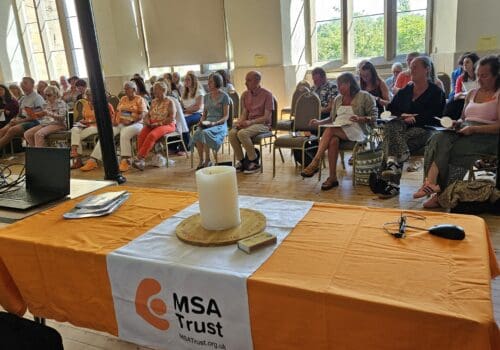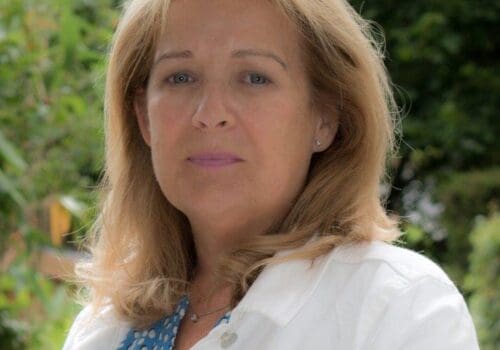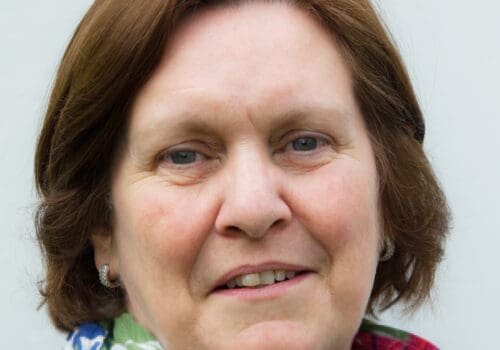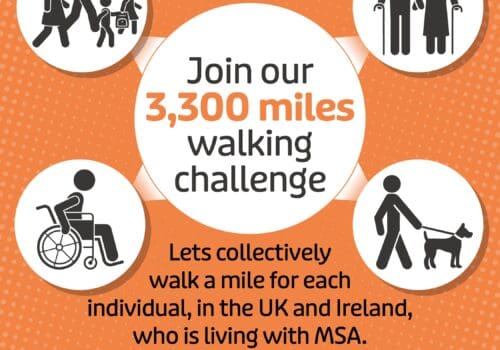- Home
- Our Blog
- brain donation , brain donation awareness , MSA Awareness Month , Multiple System Atrophy
- Our experience of brain donation
Our experience of brain donation
by Lindsay Vernon
Our experience of brain donation
I have procrastinated a lot on sharing my thoughts on this topic because it is not an easy one to think about or put words to. When reading this, please do remember that not everyone will find it easy so please be kind to yourself and stop reading if it is too hard. My intent is to offer up my experience and maybe open an opportunity for others to consider registering with the Brain Bank.
Our story so far….
Six years ago, dad started to show symptoms like issues with balance, spatial awareness, and depth perception. Strange for a guy who had driven large lorries all his life, manoeuvring them easily into tiny spaces some of us would find it hard to fit a car! It progressed to needing a walking stick, falling and some slurred speech, and he was eventually diagnosed with MSA in 2017.
Dad has seen a multitude of professionals, unfortunately the majority of whom had not heard about MSA, making my parents proficient at describing the disease and its symptoms. This steered my Dad’s desire to help others, especially to enable more health professionals understanding of this disease. In a horrible twist of fate, he is in a position to support other’s understanding of the disease. He has a brain affected by MSA, an organ that can be studied to, hopefully, provide some insight for MSA research into its causes.
The Brain Bank and the donation process
Dad, when he was able to, participated in a number of research studies and first heard of Brain Banks on a visit to University College, Queen Square, London. I understand there are 12 of these around the UK, and each have a particular focus. The one in Queen Square focuses on ‘MSA, PSP, Parkinson’s Disease and uncommon movement disorders, as well as uncommon forms of dementia’. This is where Dad has registered his tissue donation.
A phone call later he was sent two easy-to-complete forms, a consent for donation and a donor registration form.
The consent to donation form is (or was for Dad) 2 pages long. First page ensures you understand the form and you have to tick each statement to confirm this. Page 2 is a list of options with regard to what you wish to donate, and you circle the ones relevant to you. Once the form has been returned, the Brain Bank sends out a tissue donation card which details your wishes. There is the option of donating your brain or your spinal cord or both. Dad was very clear about only donating his brain and this specific wish is documented on his card. He keeps his in the MSA Trust information folder near the front door so that any visiting health professionals are aware of his wishes. This is especially important as his voice is failing.
And that is it, Dad is registered, and we all genuinely hope that his choices will enable a better understanding and further research into MSA.
Dad and Mum were keen to share some aspects of the process that supported them. Specifically: The staff at the Brain Bank are incredibly respectful with regard to the decision-making process and appreciates the enormity of it. They will help make things easy wherever they can.
The Brain Bank encourages healthy individuals to join the donor scheme as this provides essential control tissue for the studies.
The MSA Trust has resources that can help – mainly their factsheet on brain donation and advice from MSA Nurse specialists. You can contact the trust with these queries by emailing : support@msatrust.org.uk
There is reassurance about how someone may ‘look’ after they have had their brain and / or spinal cord removed. My parents felt reassured that there is minimal disfigurement to the body in the process of removing the tissue.
Dad was keen to involve his family (wife and 2 daughters) so spoke to each of us individually about making this donation. I am based overseas so a whole family chat was a logistical challenge, but we have all touched base with each other and for us this has been a transparent process. Personally, I feel this has helped and am in full support of Dad’s wishes. He wanted us to be prepared as the tissue donation process needs to be actioned promptly after death.
As I said, this blog was aimed to share one person’s, one family’s, experience. If you find yourself even remotely curious about the option of tissue donation, please get in touch with the Trust.
Lindsay Vernon, MSA Trust supporter

Disclaimer: The views and opinions expressed in the blogs published on these pages are those of the authors and do not necessarily reflect the official policy or position of the MSA Trust.
Recent Posts

MSA Candlelight 2025
19 Jun 2025 | 2 comments

International Nurses Day 2025
12 May 2025 | 1 comment


Thank you for including this topic. You handled it with great sensitivity.
Michigan, ZuSA
My husband has also donated his brain to the Queens MSA Brain Bank. It was very easy to do and we are hoping that when the time comes it will all go smoothly. He has possible ? MSA and also Fronto Temporal Lobe Dementia and now with Lewey Bodies. We are in
East Yorkshire, U.K.